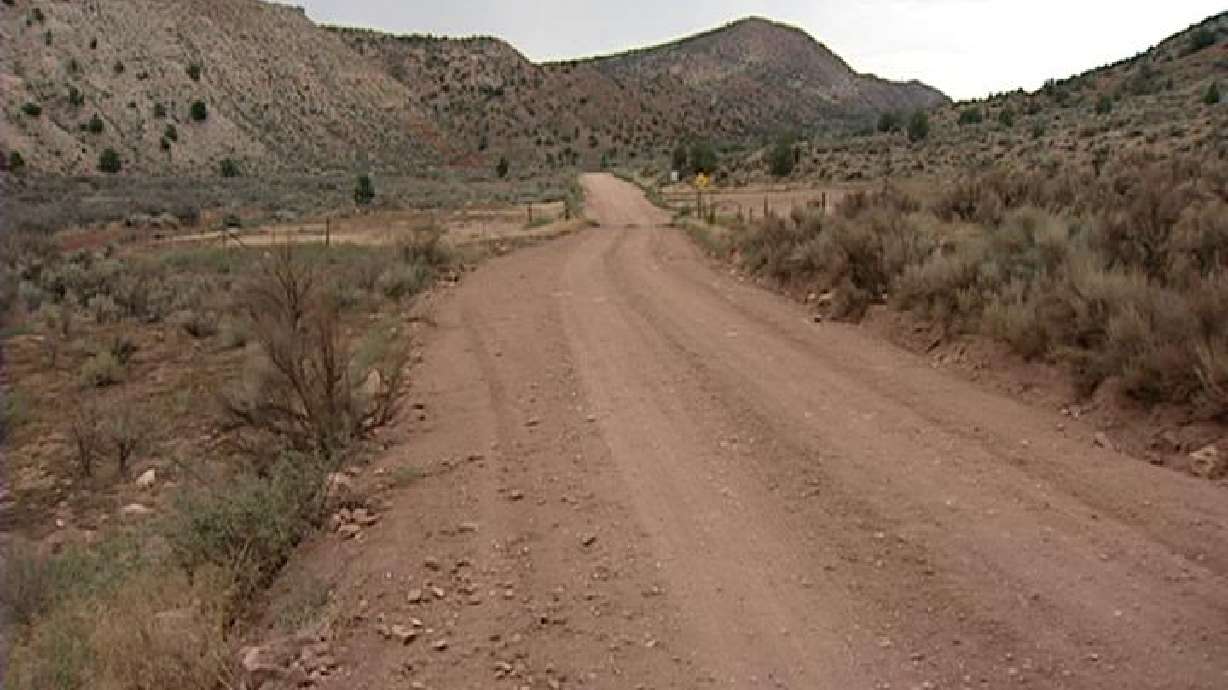Estimated read time: 3-4 minutes
This archived news story is available only for your personal, non-commercial use. Information in the story may be outdated or superseded by additional information. Reading or replaying the story in its archived form does not constitute a republication of the story.
SALT LAKE CITY — They are roads traveled by ranchers, by rural country truckers, deer hunters and maintained by county construction crews.
In the 19th century, these narrow roads in Kane County served as pathways for communication and survival among Mormon pioneers sent to settle the area.
For modern-day residents of this rugged country, access to these roads remains just as vital — demonstrated by a legal battle playing out in federal court in a bench trial this week that has Kane County taking on the federal government with everything it has.
Since Aug. 15, the county has paraded out a string of witnesses to testify about rights of way to a handful of roads — seven in all — but roads of critical importance.
The Southern Utah Wilderness Alliance says the problem is a "nightmare for America's wild public lands," because such designations would open up access to roads that are not roads at all but rather faint cow paths or remote jeep trails.
"These roads are part of a county system of transportation heavily relied upon for business, recreation, for purposes of all sorts," said Kane County Commission Chairman Doug Heaton in a telephone interview. "In order to access that, we have to keep these roads open."
When the trial concludes next week, it will be up to Judge Clark Waddoups to decide the scope of the access among tangling parties — a decision that could set the tone for similar disputed RS2477 road claims throughout Utah.
On the one side are county and state government — as well as users of the road — that argue access has to be maintained for continued use of the area for multiple purposes. On the other — the federal government and environmental groups that contend such use would derail wilderness study area designations and open up pristine areas for inappropriate development.
The Southern Utah Wilderness Alliance says the problem is a "nightmare for America's wild public lands," because such designations would open up access to roads that are not roads at all but rather faint cow paths or remote jeep trails.
The issue of access is of such importance to state public policy makers that they established a war chest and litigated it to the 10th Circuit Court of Appeals in Denver in another case that also involved Kane County, which it won.
If these roads are not roads, than the state of Utah and the taxpayer have been spending dollars on something that does not even belong to them.
–- Rep Mike Noel, R-Kanab
That same attorney for Kane County, Shawn Welch, said he feels this case is also going well and his witnesses should wrap up their testimony by Thursday.
The RS2477 case involves rights of way access granted by the federal government in 1866 for the development of roads to encourage settlement of the West. The congressional act establishing those rights was later withdrawn in 1976 with the passage of a new federal land plannning act, but those roadway access rights were supposed to be grandfathered in.
In Wednesday testimony, Kane County's transportation mapping director, Lou Pratt, explained the a long history of grading the roads in question, the installation of culverts, filling in of gulches created by flash flooding and removal of sediment deposited by the same type of storms.
He also testified that the county typically operated under a 66 feet right of way for such maintenance on some of the roads, as well as making improvements to the alignment of roads to improve safety.
Rep. Mike Noel, R-Kanab, a key policymaker in getting rights of way solidified and protected for rural Utah, said the counties for years have spent gas tax money on these roads to maintain them — without any dispute from the federal government.
"If these roads are not roads, than the state of Utah and the taxpayer have been spending dollars on something that does not even belong to them."
The case is expected to wrap up next week.
Email:aodonoghue@ksl.com








